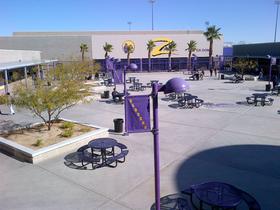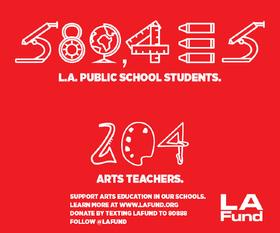At a time when many schools are pushing churches out in the interest of separation of church and state, one large Florida school district is actually welcoming churches in. Duval County, as well as other Florida school districts, appears to be learning the delicate dance between accepting help from community churches without bringing religion into the school setting. As the two coordinate efforts, it seems the biggest winners in this new partnership are the students the schools – and churches – aim to serve.
An Unlikely Partnership
The Florida Times-Union reports that First Coast churches are coming to the aid of many schools in the area, with surprisingly positive results. The first step toward this unlikely partnership was the school system, which approached a Christian non-profit, Campus Crusade for Christ, five years ago. One of the employees of the organization, Ken Vensel, was surprised when school officials asked the organization for help with a faith-based initiative for the schools. However, Vensel took the request to heart and organized a group of faith leaders in the area to come together in providing the services schools were looking for.
The result has been a number of partnerships between schools and faith leaders throughout the state, including Duval County where the needs are often great. In one Duval elementary school, Windy Hill, nearly 70 percent of the student population qualifies for free or reduced-price lunches. Churches can help these schools in a variety of ways, offering food for students to take home on weekends, tutoring and mentoring assistance, and financial support for the school’s student welfare fund.
This TEDTalk looks at partnerships with schools.
A Growing Movement
According to the Florida Times-Union report, there are about 100 Florida churches helping 130 public schools in the state. Ministry Today reports that one church in Polk County, First Baptist Church in the Mall, has donated $5,000 to nearby Combee Elementary School. The money has paid for food, school supplies, and even sneakers for students in need. As these partnerships are proving beneficial on both sides of the coin, Vensel continues to help Florida counties set up their own church-school partnerships.
“We’ve been very surprised by the reception for this,” Vensel told the Florida Times-Union. “We’re not seeing the kickback that some of the preachers expected.”
Vensel said part of the success of the newly formed partnerships is the role churches are careful to play. Church members do not go into schools preaching or proselytizing. Instead, they go in to help with whatever the school needs them to do.
“We go in as servants,” Vensel explained. “We don’t bring our program. We bring our people. We ask the school, what do you need? How can we serve you?”
This video examines partnerships between church and school.
Leading by Example
While church members are careful not to preach their religion, they do believe they are showing their faith by example. Jim Young is the community outreach director for the Northeast Florida District of the United Methodist Church. He has overseen the partnerships of 37 Methodist churches with area schools throughout Jacksonville. The churches began with small service projects, such as painting and landscaping help. However, as trust between the schools and churches has grown, so has the level of outreach available.
Today, Methodist churches in Jacksonville provide a wide range of services to area schools, including help with vision and hearing screenings, book fairs, and clothing drives. The church brings in mentors and teacher’s aides to work with students in and out of the classroom. The churches even stock the school pantry that allows students in need to take food home on the weekends.
Schools Stepping Out of their Networks
A few years ago, the Wall Street Journal reported on a trend by public schools across the country to step out of their inner network and seek financial help from outside sources. As school budgets get pinched tighter and tighter, schools have gone to non-profit organizations and local businesses to get the extra money they need. The schools are seeking classroom essentials like supplies and books, which cannot be purchased with the money made from school fundraisers and bake sales. There simply isn’t enough money to go around.
In Florida, the greatest assistance appears to come from area churches that are willing to give time in addition to money. The principal at Windy Hill Elementary, Calvin Reddick, Jr., told the Florida Times-Union, “They [CrossRoad Church] provide so much support that wouldn’t be provided by the school district. The entire congregation is involved and we have 20 to 30 people who come regularly. And if I need someone or something, I just pick up the phone. It’s unbelievable.”
The church brought its own food pantry to the school, allowing families to go to Windy Hill, rather than the church, to get their basic needs met. The church has also donated $23,000 to the school’s student welfare fund to ensure every student has at least one hot meal a day. The money also went to fund a summer camp.
This video offers another take on partnerships between church and school.
CrossRoad Church even offers a faith-based program taught at the church building, Say Yes, which students can sign up for with their parent's permission. The program teaches leadership skills, ethics, and values. Reddick said the students that participate in the program have few if any, discipline issues in the classroom.
While the partnership between CrossRoad Church and Windy Hill Elementary might be tighter than the coordinated efforts of other schools and churches, many public schools in Florida are learning the benefits of going to area churches for help. As these partnerships prove beneficial to the students in those schools, perhaps more partnerships like this will be created in the future.
Questions? Contact us on Facebook. @publicschoolreview















